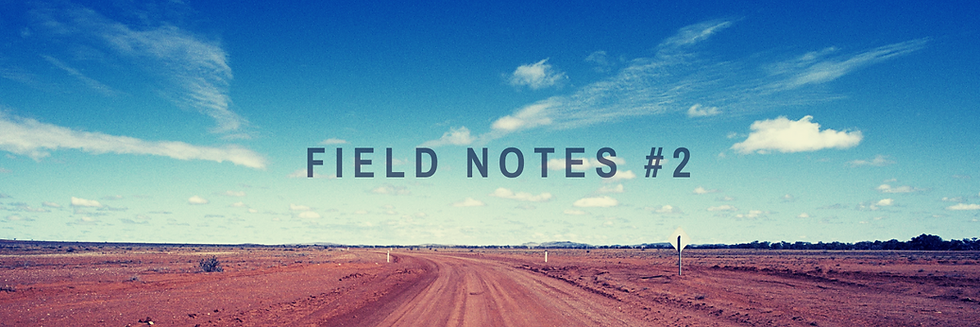Searching for Trust in Cancer Care
- Pablo G.
- Jul 25, 2025
- 3 min read

I’ve always been curious about science and systems, especially what happens when they don’t work as expected.
In my downtime, I read and research science topics that catch my attention, especially the ones that show how systems succeed or break. I don’t usually post about this, but this one hit close to home.
Lately, I’ve been digging into the cancer care experience. Not as a clinician. Not even in a professional capacity. But because I’ve supported someone through it, and I remember how hard it was to find peace of mind that we had as much information as possible to make the right calls.
After a diagnosis, most people rely on their doctor, and that opinion varies based on who sees you first or who you picked. But they also turn to Google, often desperately, trying to make sense of fragmented answers, technical language, or rushed conversations.
At first glance, this feels obvious: people Google their symptoms. What is concerning is that it’s not necessarily out of curiosity, but of compensating for systemic gaps or lack of access to digestible and trustworthy information.
Here’s what I found 👇
🚨 Where the System Breaks Down
🔸 Communication & Empathy Failures
– It’s not uncommon that cancer patients feel ignored, dismissed, or uninformed. Patients often complain that no one discussed treatment options with them, and some feel like they didn’t receive enough emotional support.
🔸 Information Mismatch
– Complex jargon, generic printouts, or un-relatable content leave patients overwhelmed and under-informed. Even credible data can backfire if it’s not applicable to the patient’s unique case or framed with empathy.
🔸 Uncoordinated, Fragmented Care
– Data from labs, genetics, and wearables often live in silos.
– Patients describe being “left floating” post-treatment, unsure what comes next or how to manage side effects.
🔸 Trust Gaps and Complementary and Alternative Medicine (CAM) Disclosure Barriers
– Many patients don’t disclose use of alternative medicine, fearing judgment or irrelevance, which prevents open dialogue and safe care.
– Physicians report lack of training, skepticism, and time as barriers to discussing CAM use meaningfully.
📊 Why Patients Turn to Google
-It’s not always to second-guess the doctor. Often, it’s because:
-The appointment was too short.
-The information didn’t feel human.
-They’re desperate for reassurance, control, or hope.
-They need to protect their energy and make sense of what’s next.
And it’s not just search engines. People collect cancer-related data passively from TV, conversations, old memories, or even patient portals. Everything becomes part of the decision-making process.
🛠 Connecting The Dots:
These challenges in cancer care are not unsolvable and many have clear, actionable solutions. Poor communication and feelings of being dismissed can be addressed through empathy training and more proactive patient engagement. When patients turn to Google in fear or confusion, care teams can provide curated guidance to credible, easy-to-understand resources that supplement clinical advice.
The common silence around complementary and alternative medicine (CAM) use highlights the need for safe, non-judgmental spaces where these conversations can happen openly. To reduce the sense of fragmentation during and after treatment, integrated data sharing and clear post-care navigation can help patients feel supported and informed. And instead of overwhelming patients with generic handouts or jargon-heavy materials, we can offer personalized, framed, and multimodal education that meets people where they are — emotionally and cognitively.
If you’ve worked in cancer care or supported someone through it, none of this will surprise you. But the fact that it still persists is what makes it worth sharing.
So here’s the question:
👉 What would it take to make peace of mind — not just survival — a standard part of the cancer journey? How can we integrate CAM into the journey in a non-judgmental way?
If you’re exploring this too, I’d love to hear how you’re approaching it.
—
Sources (Just some worth sharing, all others available on request)
📌 Living with Cancer: Patient Experience Report – Canadian Partnership Against Cancer📌 Groundbreaking Report on Canadian Cancer Care – CPAC




Comments